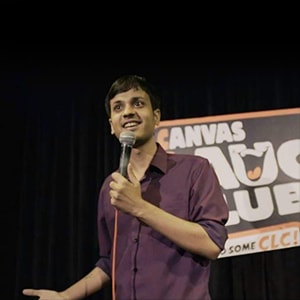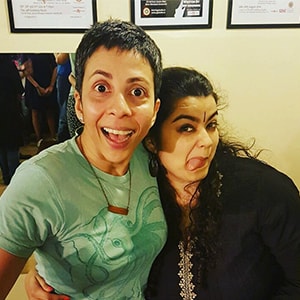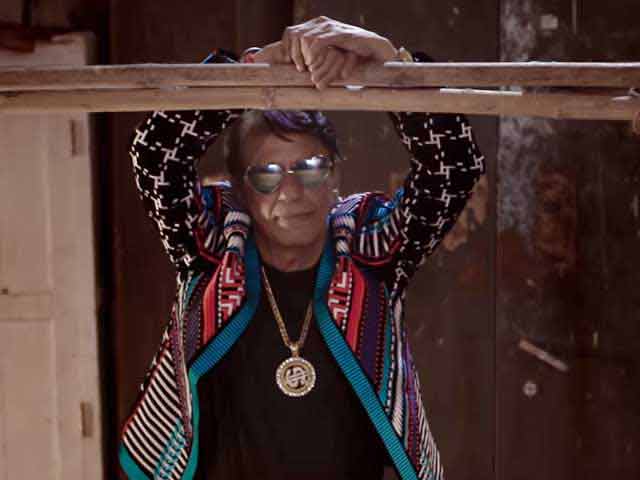Varsha, Pallavi, Piyush and Punnet are young Indians who are out to make their career in stand-up comedy. While balancing their full time jobs, they spend weekends doing open-mikes and shows. HFT spoke to them and here is what they advise aspiring comedians.
Sexism in standup comedy club?
What’s common between free will and making someone laugh? Both can’t be premeditated by any force of nature, including the supreme One. It is a rare occasion to feel heartened when people refute what you claim. In this case, all the four stand-up comedians we spoke to refuted any allegations for sexism in the standup gig field. It is open for all and fair for anybody with the right talent, if you can make people laugh, then that’s your passport to joining any standup comedy gig.
Varsha Kini, a young lady with a day job in software giant, chanced upon comedy through her Facebook posts. An established comedian saw her enthralling and funny posts and encouraged her to come for Open Mikes. From there, now she is part of 5 group Kaamedy.inc, which specialises in clean humour without routine hacks. She also conducts workshops on improvisation.
Varsha emphasises that to be a comedian, you need to have the capacity to think differently and yet be able to relate to the audience. In a way, empathy mapping is important to gauge the audience and draw a line where things stop being funny and start becoming offensive.

When it comes to gender parity, all of them vehemently asserted that the field is equal and open to all. There is no discrimination in any form. If there is lesser representation by women, it is only because the field is new. It is only a question of time before enough women get on the stage. Both, Pallavi and Varsha, said that in this age, any girl with enough nerves can get on the stage if she has the right skills and content.

Can you be consistently shameless and funny
Piyush Sharma, graduated from IIT Mumbai and after working in J P Morgan for three years, decided to plunge into comedy. He thinks that as a career, comedy requires a lot of patience, consistency and shamelessness. He said it takes guts to go back on stage after every trial and error when your jokes tank.
Pallavi Naik, a working mother, feels that “from the time of kings, people with high sense of humour have always made a career out of it”. Pallavi has a stark contrast when compared to other struggling comedians. She has grown up in the culture of comedy, listening to Hasya Kavi Sammelans, and the village traditions of skits and mimicry in her Karnataka village of Gokarna. George Carlin and Louis CK are her inspirations.

It’s a serious business
There is fierce competition in standup comedy business, the entry barriers are very low, while that is a good thing for new comers, it takes the toll on those wanting to make it a full time career. One lever to pull is to be associated with established names and clubs, who are very supportive. Piyush was noticed by Vipul Goel, an established name in the field, popular for his corporate shows; and now Piyush opens the show for Vipul. Piyush also said that compared to the large audiences and opportunities in India, there is space for all and lot of content for all struggling comedians to have their chance.
From an audience perspective, despite availability of free or cheap online content, they still flock for live performance for many reasons, lifestyle and peer company are a few to name. Varsha compares this to watching cricket on TV vs. watching it live in the stadium. She says, “people come for the kicks and the ambience; it is very thrilling to watch a performing comedian”.

There’s more to humour in India
Puneet Lamba, the manager for Vipul Goel, suggests that there is lot of scope for upcoming comedians as the art is spreading to tier II and III cities in India. Popular taste is slowly shifting to these cities due to education and exposure to the form from western countries. Both, Varsha and Pallavi, assert that the form of comedy is not new to India, and we think this is good news to the aspiring comedians.
As a country, India has a sense of humour. In all regions, there is some form or other of skit, mimicry and improvisation as part of festive celebrations. Pallavi remembers her grandfather, the Sarpanch in her village, being roasted during skits. She also speaks of the revival of regional comedy in vernacular scripts and forms.
Our take: Having a good sense of humour is just a beginning, becoming a full time standup comedian takes as much hard work and consistency as any other art based profession such as acting or singing. From making the right contacts, to perfecting the sense of timing, to being a perfect courtier; one needs to master it all; sounds astonishingly similar to the fabled characters of Birbal and Thenali Rama.














